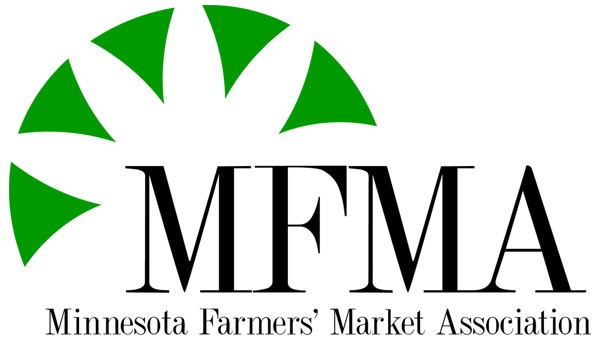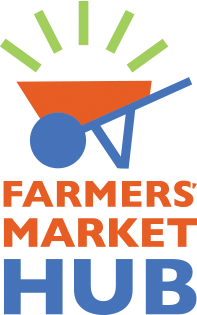| Virginia Food Hub established to aggregate local foods in the region |
By: Kathleen Rykhus
December 2022
Northern MN faces a number of unique challenges when it comes to local food systems: a short growing season, and a small, dispersed population demand creative solutions to scaling up production. Infrastructure like greenhouses and equipment are crucial to increasing production, but there are a variety of other ways, such as combining/aggregating products from a variety of producers to meet the needs of customers and wholesale buyers. The Virginia Farmers Market Food Hub is an aggregator on the Iron Range that is helping get more local food into schools, stores, and on families’ tables all year long.
Located in the arrowhead region of Northeastern Minnesota, St. Louis County is the largest county east of the Mississippi River. Known for its spectacular natural beauty, lakes, and trout streams, the area has a history of logging and mining of iron ore. The region also has a rich tradition of farming and local food systems.
Kristine Jonas grew up in Tower, MN, where her father farmed. Today she is a vendor at the Tower and Virginia Farmers Markets, as well as the Food Hub Manager for the Virgina Market Square Farmers Market. She knows that the challenges being faced by people who are trying to grow the food system here are many but she also describes a spirit of community and cooperation that is helping those who are passionate about local food increase access to locally grown produce, meats, and homemade products through a variety of creative approaches. Minnesota is one of only six states besides Alaska where temperatures have officially reached into the negative 60s Fahrenheit; cities in St Louis County, like Tower and Embarrass, have made the list of coldest places in the US, with record-breaking low temperatures. Even without these extremes the risk of frost in the area is present from at least September until May, leaving a very brief window of opportunity for growing. And yet, those few months are an abundant time in the region. Jonas says that the availability of equipment and overhead needed to extend the growing season—and also aggregate with other regions such as Itasca County—will be key to growing a sustainable, resilient local food system for area communities. |
Jonas got involved with the Minnesota Farmers' Market Hubs while selling her husband Karl’s bread at Tower Farmers Market. The project helps connect local farmers with area buyers and each other, giving producers more outlets for sales. Jonas was interested in the project because she immediately saw the benefit of producers in the area pooling their resources and working together to offer even more fresh, healthy food to their communities. It hasn’t always been an easy sell to farmers in the area. The region is known for its staunchly independent spirit and it can be hard to get people to try doing something in a new way. Thankfully her caring attitude and genuine interest in people convinced several area producers to put some products on the platform in its very first year. Ten producers joined the platform, which gave them the option to sell products online for pick up at regular market hours. Customers at the Farmers Market appreciated the ease and convenience of ordering online. They don’t always have time to linger at the market and sometimes vendors run out of popular products on market day. Karl’s Bread customers, for instance, can now simply order and pay for their favorite loaves online and then pick them up at the market. |
The larger advantages of the food hub will be built over time, though, when producers are able to put their products into an aggregated order to the schools or other wholesale markets. “If everybody does well at the Farmers Market then everybody in the community does well,” Jonas says. “That’s what the hub is—we want to support our region by bringing more local foods to area businesses and institutions and by keeping more money in the local economy.” An example of this health and economic impact came with the opportunity to participate in the Great Lakes Apple Crunch, an annual celebration of fresh, local apples on the second Thursday of October during National Farm to School Month. Schools, universities, businesses, and families across the Great Lakes Region are encouraged to buy and use local apples. Jonas joined forces with managers from the Aitkin Farmers’ Market Food Hub and the Grand Rapids Farmers’ Market Food Hub, to sell over 5,300 locally grown apples to area schools, including Hibbing, Chisholm, Eveleth, and Virginia schools. Over the long winter Jonas will be busy facilitating training and education for area farmers on topics like food safety and good agricultural practices. She will also continue to cultivate relationships with the stakeholders involved in local foods that are sure to lead to some exciting things for the next outdoor market season. |
If you would like to get involved with the Virginia Market Square Farmers Market Food Hub, contact virginiafarmersmarkethub@gmail.com. |
|


 Graphic is from the Virginia Farmers' Market Website
Graphic is from the Virginia Farmers' Market Website